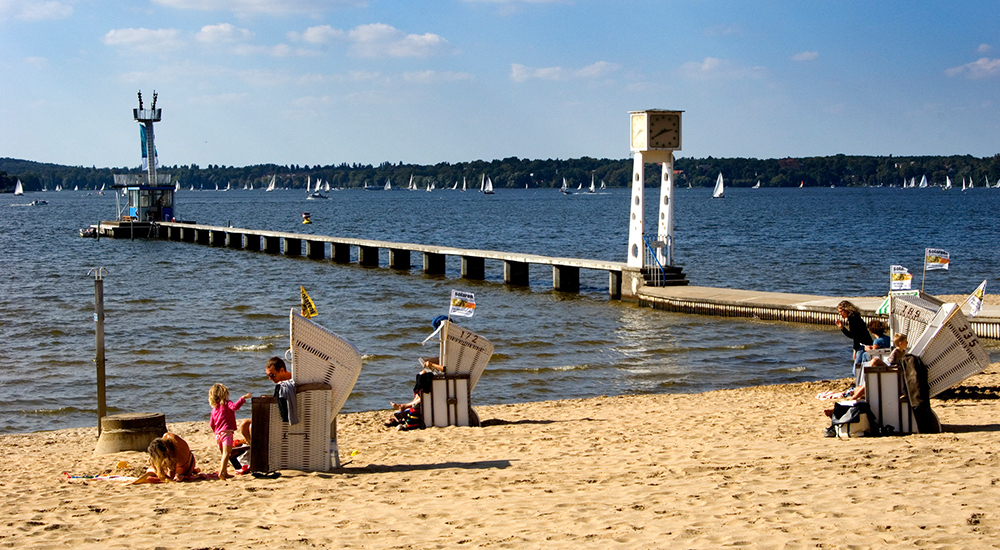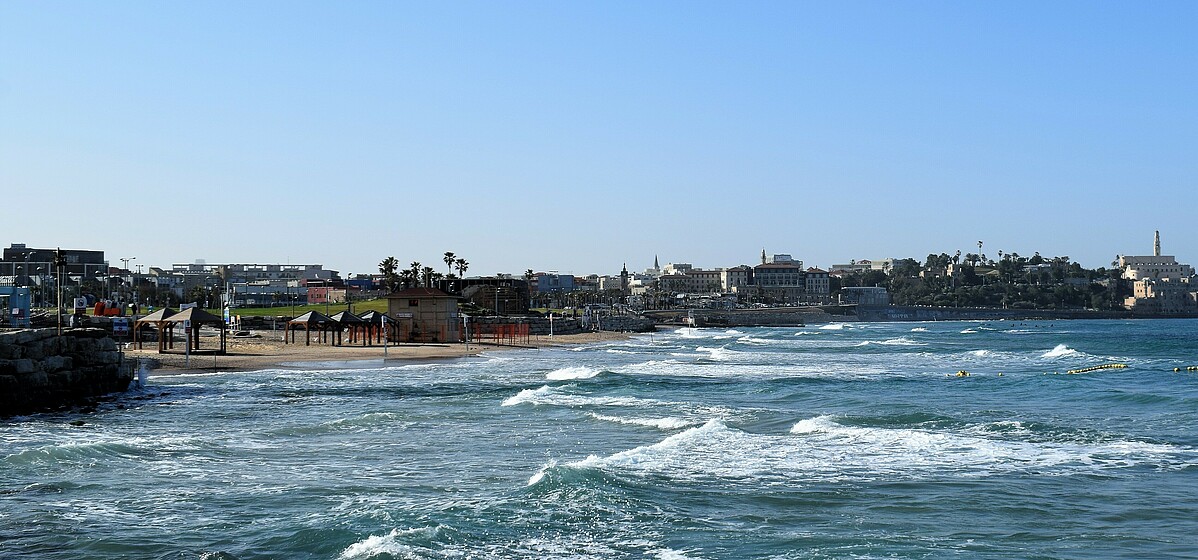“Israeli Chutzpah Meets German Processes”
Entrepreneur, investor, business and localization expert Gilli Cegla gives enlightening insight into the ecosystems of Berlin.
An outspoken advocate of the startup culture and entrepreneurship mindset, Gilli Cegla is a well-known Israeli founder, speaker and connector of startups and businesses between Israel and Europe.
During the course of his extensive career, Gilli has co-founded 6 startups, helped build many others, acted as an angel investor, founded the micro fund Direct Round which invests in early stage Israeli tech startups, and as social entrepreneur co-founded the communities Geekcon.org, VideoTLV.org and CyberTLV.org, all dedicated to improving the Israeli tech ecosystem. His annual initiative EuropeDays offers Israeli startups useful information about the German-speaking ‘DACH’ market and the business & investment opportunities it offers. His agency Novawind helps European companies to accelerate their digital innovation and cyber approaches. In Berlin, Gilli was mentor in three different accelerators: Axel Springer’s Plug & Play, Metro Xcel accelerator, and hub:raum, Deutsche Telekom’s incubator.
We spoke with Gilli just after 2022’s EuropeDays.
Gilli Cegla, as an Israeli, how did you feel the first time you came to Berlin?
Great! I was curious because I knew a lot of Israelis in Germany but I had never visited Berlin before. My first visit was business related, I came over with a client, an Israeli startup, for a few meetings with prospects based in Berlin. But I took an extra day off to do some tourism and it was great. A beautiful city.
You have since worked in Berlin for many years. What exactly did or do you do in Berlin?
When I come with clients I come in a business development capacity as the person who understands both Europe and Israel, for the localisation touch.
How come you have this understanding?
Well, first I have a family background, though not from Berlin, but in the German speaking ‘DACH’ region, so Switzerland and Germany. Berlin started with that Israeli client, but then the Berlin connection evolved when Deutsche Telekom became one of our clients. We basically helped them develop a footprint in Israel, many years ago, and then did more out of their Berlin entities like T-Labs [the R&D department of Deutsche Telekom] and later on hub:raum [Deutsche Telekom's tech incubator]. And in the meantime we have quite a few other German clients.

How has Berlin changed since you first came here? The last few years have seen a marked influx of Israelis moving to Berlin. What makes Berlin so attractive? Why would young Israelis come to Berlin, of all places?
Well, I can’t speak for all Israelis, but from my own macro-level observation it was really first the art city. About fifteen years back, artists, musicians, dancers came to Berlin as a place that is, I would say, art friendly. You know, there are many places to showcase your art, galleries and also stages, and new types of art are appreciated. At the time Israel was less accepting of new or alternative art forms, and Berlin was very welcoming in this domain. So many people left Israel in order to develop themselves in Berlin.
I found myself following the evolution of the ecosystems in Germany since then. I followed Berlin as, if you will, a destination for aspiring artists, in many domains, and then through the time of the real-estate moguls, to the startup city it is now.
In the last ten years the tech scene has evolved, along with the ecosystem and all that relates to startups. Berlin being an international place is the only place in Germany where you can get by with English, you don’t really have to speak German. Or you can manage with very little German. As a hub, an ecosystem, within Germany, Berlin became attractive.
And now I am seeing another layer, that of talent. Meaning Berlin startups need more talent, so including Israeli talent, in various domains, be it programming, cyber-security, and other positions where experienced talent is scarce in Germany. So now people simply go there for jobs and to further develop their careers.
In terms of working and living here, how do the attitudes of people towards work and digitalization differ between Berlin and Tel Aviv? Are the stereotypes true that Germany is more efficient and Israel more relaxed? That Germans still pay with cash and Israelis don’t?
Well first, yes, Germans still pay with cash and Israelis don’t. I didn’t see cash for two years, to be honest. There are many differences. Would you like to focus more on the cultural aspects?
“Work/life balance? If you’re an entrepreneur, there is no life. You work.”
Well, I am most interested in what it’s like to live and work here.
Israelis on the upside bring with them the ‘can do’ approach. So it’s, ‘let’s do first and ask for forgiveness later’. It’s an entrepreneurial approach. On the downside I would say it’s less structured. You know, Israeli chutzpah meets German processes. And as you know if you plan long term you need processes in place. So this creates a lot of culture clashes within mixed teams. The Israeli approach would be ‘let’s take our alpha or beta to the market as soon as possible’ because the clients are the ones to give us feedback so we can improve it. Whereas the stereotype German engineer would say, ‘no no, I want to reach perfection, 100%’, or what he or she thinks is perfection, which creates delays in releasing the product. The right place is somewhere in between, of course. And these clashes are interesting, in my opinion.
What I also see often is the work/life balance. If you’re an entrepreneur, there is no life. Your life is your work. So being an entrepreneur who doesn’t answer emails on Sunday, as you sometimes get in Germany, just doesn’t fly. That said, an Israeli entrepreneur who works seven days a week and has no time to relax will burn out. So yes, there should be some balance, but, you still have to be all in. So this is another difference that I see in both worlds.
What about the typical characteristics, differences, strengths and weaknesses of the respective ecosystems?
Since I have been following the ecosystem, Berlin has really matured. There is a huge amount of startups. I tried to check how many, I got tons of answers, anywhere between a few hundred to a few thousand. But anyway, we see more and more startups in Berlin. We see more and more funding [see our article Best Chances to Raise Money in Berlin]. It’s easy not only to open a startup, it’s easy to get funding in Berlin, be it local money, German money, or European money. And even Americans are investing in Berlin, which is great.
I think what is still really needed are a few exit stories. Berlin startups that made it to an IPO or an M&A. There are a few, but not enough. There are a few soon-to-bes, probably, like N26 and a few other amazing things that have come out of Berlin. But the more success stories, the more the drive.
Germany is still very much corporate career oriented. I gave a lecture at a Berlin university on innovation and entrepreneurship. Most of the hands raised were for corporate career paths, only a few, under 10%, said ‘I want to be an entrepreneur’. So to shift, this needs more success stories in order to sustain and increase the momentum.
It took Israel, by the way, about thirty years, I would say, to reach this shift, of having sound professions like doctor, engineer, lawyer, to ‘I want to become an entrepreneur’. And there is a shift in Israel now towards being an employee, because we have about 400 multinationals here now who pay a lot of money to engineering talent. And we have a shortage too. So something is happening here again which is counter entrepreneurial. But the mindset in Israel is more entrepreneurial.
And that said, Germany has a lot of entrepreneurs. Any baker is an entrepreneur, shopkeepers or small business owners technically are. It’s most of the German economy, but it is not considered as such. So if we combine this with startup mentality, there need to be more success stories.
I guess the average German baker wouldn’t want to answer emails on a Sunday after baking Brötchen.
That’s okay. But he’s an entrepreneur. Because if he fails, he’s out. He just won’t be exiting by selling his business to an Aldi, or another large retailer. What I mean is that the nucleus is there, it’s just not considered entrepreneurial.
“You have to be all in”
So what can Berlin learn from Israel?
Again, the ‘go to’ approach. The entrepreneurial spirit. And a faster pace. Because the components are there. Berlin is a party city and an entrepreneurial city. They’re just not so combined. The Israeli would be ‘work hard, party hard’. You can go out clubbing till three in the morning and then at ten o’clock you’re at work. I would say the combination of both worlds, because the elements are there, now you need to put them together.
And what can Israel learn from Berlin?
Israel can learn from Berlin structure and processes. Yes to some balance, and not everything thrown together.
Where do you see potential for stronger cooperation?
I see an exchange where the startup ecosystem here in Israel could go more towards Europe and Berlin. Because 90%, give or take, of the Israeli startups tend to go to the US. 10% go to the rest of the world. Again, these are my estimates.
Berlin as a destination in many sectors has a lot to offer Israeli startups. It could be media, with companies like Axel Springer and other publishers. We have the ehealth sector, where a lot is being done. There’s the Bayer accelerator G4A, and a few other initiatives that are happening. Now you have Tesla too [see our article Driving The Future]. And you have the BMW plant, mostly for motorcycles, if I’m not mistaken. And cyber security due to all the government offices, and a military cyber accelerator is also based in Berlin. Hub:raum for engagement with telecomms is in Berlin. Even ecommerce, with Zalando and a few others which are highly valuable.
And not to mention the smart city initiative. There are a lot of touching points, where Israelis can meet for example a partner or even a client. So if a startup focuses on these sectors, Berlin has tons to offer as a destination.
And vice versa, for Berlin, Tel Aviv and Jerusalem are cities that are building ecosystems. The Tel Aviv ecosystem is about 25 plus years old. The Jerusalem ecosystem was built in the last six or seven years, so relatively fast. Building ecosystems, how to work with startups at a city level. And for German startups to find inspiration in the Israeli startup approach in a kind of entrepreneurial exchange. We have a lot to offer to get inspiration on how to do or not to do things.
As a destination we have nothing to offer, because we’re nine million people, and the language, well, we write in the ‘wrong direction’. There’s really nothing you can do with Hebrew on a global scale. I would not localize for nine million people as a first priority.
If Berlin has so much to offer, is it a problem that Berlin is not communicating this well enough?
Berlin is communicating nicely, and could do more. Nicely meaning that if you walk up to an Israeli in the street and tell him, ‘Hi, I’m from Germany’, they will probably ask you by default, ‘Are you from Berlin?’. Because that is the most-known German city to Israelis. Many Israelis visit Berlin for tourism, less to work. By the way, [the co-working provider] Mindspace is an Israeli startup.
On bringing startups and talent over, Berlin is doing work, and could do more. We see that every time someone from Berlin Partner [the Berlin economic development agency that is bringing you this article] comes over, things really get moving. They go back with tons of leads from interested people & startups. All that is missing I would say is more guidance on working the ground here.
Picking up on another thing you said, over here when people talk about Israel from an economic standpoint, it’s usually Tel Aviv that comes to mind. Politically it’s Jerusalem. What other places in Israel are of interest for business, and for Berlin?
We are seeing growth of ecosystems throughout Israel. Israel is no longer a single ecosystem but several ones. It’s Tel Aviv, then Jerusalem, with over 600 startups already. We see Beersheba on the rise in topics that are mainly around cyber security and big data. We have Nazareth, which is the ecosystem for the Arab sector, mostly Christians, that is starting to emerge. I estimate they have something like 80 to 100 startups already. This is a place that in the past was never in touch with tech really, but now they have a lot of engineers and talent, so now the ecosystem is emerging. The ecosystem of Nazareth is about five years old, give or take. We see Haifa is starting to emerge. Haifa has the Technion [Israel Institute of Technology], the MIT equivalent for all that is around engineering, telecommunications, and similar domains. There are three accelerators/incubators there, they’re gaining traction. In the north, Kiryat Shmona and Metula are emerging with the foodtech sector. There’s a new foodtech accelerator there.
So basically we are showing that Tel Aviv was not a one-off ecosystem creation. We can repeat this creation of ecosystems.
You mentioned ehealth as well earlier. Are there any connections in this specific sector?
In Berlin you have the Bayer accelerator, the Pfizer hub, and you have the Charité [university hospital], which is open and always welcoming startups with a lot of initiatives where also Israelis apply.
And most significant is that in 2021 the German Health Ministry finalized the reformed legislation for the laws that enable ehealth. So I think now everything is set, basically, to start accepting a huge volume of startups around ehealth in Germany in order to, among other things, digitize the German health sector.
As a national case study, Israel, is 98% digitized in everything that is health services related. I can do anything with my mobile app – meaning doctor’s appointments, prescriptions, test results, radiology, covid certificates. Everything is on my mobile app. My regular exchange with the doctor is texting or a video conference. You don’t have to go to the doctor with every question. This was a gray zone in Germany until recently. Now it’s possible from a legal perspective. This basically opens up the field to Israeli startups and businesses that know how to do it.

One last question: If Berlin had a mediterranean beach and were altogether warmer, would you be living here?
Very likely, yeah. You have a beach, by the way, there is a beach on the river. Though it might be a bit cold.
Gilli, thank you very much for this conversation.
Interview: Olaf Bryan Wielk, ideenmanufaktur
Header image: © Adobe Stock

